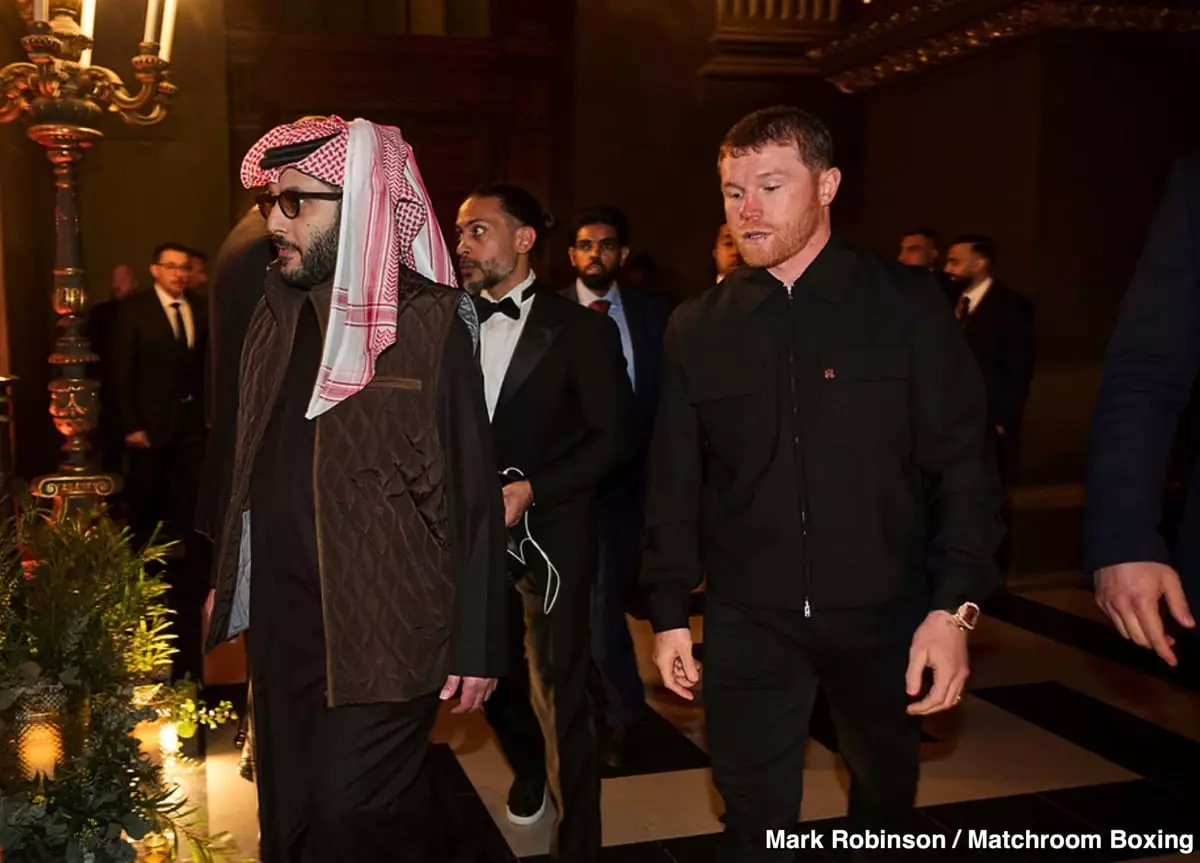In the world of boxing, few names spark as much debate as Canelo Alvarez and Oscar De La Hoya. Both have etched their legacies into the sport but have taken different paths in recent years. De La Hoya, a revered former champion and promoter, recently unleashed a barrage of criticism towards Alvarez during his online segment ‘Clap Back Thursday.’ This piece explores the essence of De La Hoya’s critique and digs deeper into the implications of Alvarez’s choices in light of his recent actions and public perception.
Oscar De La Hoya didn’t hold back, labeling Canelo Alvarez as a “money-hungry” boxer willing to forsake his loyal fanbase for financial gain. The former champion’s passionate tirade stems from Alvarez’s decision to turn down a bout with rising star Jake Paul in favor of a four-fight contract with Turki Al-Sheikh. Critics point out that this move highlights Alvarez’s priorities as one bent on maximizing his earnings rather than delivering fan-desired matchups.
In a sport that prides itself on competition and honor, De La Hoya argues that Alvarez’s choice to bypass potential blockbuster fights, particularly against formidable opponents such as David Benavidez, undermines his credibility. Fans and analysts alike see this as an apparent play for financial security over athletic integrity. De La Hoya’s assertion that Alvarez has created a “diva” persona resonates with those who feel he has abandoned the fighter’s ethos—that is, to face the best challengers regardless of the stakes.
De La Hoya pointed out that Canelo’s fight against William Scull on Cinco de Mayo weekend is perplexing. Scull is viewed as a less compelling opponent compared to Benavidez, who recently scored an impressive victory and is considered one of the most exciting fighters in the division. Critics argue that not only does this choice lack excitement, but it also feels like Canelo is shying away from potential high-risk scenarios that could damage his carefully cultivated brand.
By bypassing more competitive fighters, Alvarez potentially alienates fans yearning for thrilling match-ups. The disappointment among the boxing community is palpable; they crave fighters who embrace challenge rather than avoid it. Instead of embarking on a path that could solidify his legacy, Alvarez appears to be chasing easy paydays—an image that could tarnish his reputation among boxing purists.
As De La Hoya astutely points out, Alvarez’s current trajectory could yield a more profound issue for future generations of fighters. By prioritizing financial gains over competitive spirit, there’s a risk that younger fighters will emulate this approach, leading to an era where the love of the sport is eclipsed by commercial interests. De La Hoya recalls his own era of boxing, characterized by warriors who were willing to face anyone, anywhere, at any time. This raises an essential question: is boxing, as a sport, moving towards a phase where financial considerations overshadow the genuine spirit of competition?
In the eyes of many fans, Canelo’s conduct may not only affect his legacy but could shift the landscape of boxing itself. Will the next generation of champions draw inspiration from Alvarez’s choices or instead return to the noble ideals of combat that defined the sport’s storied past?
In expressing his discontent, De La Hoya inadvertently sets an expectation for the next wave of fighters. If Canelo Alvarez is deemed the face of the “diva” era, then every fighter in the sport carries the burden of proving their commitment to legacy over profit. Success demands not just talent but also a willingness to engage in challenging bouts that thrill fans and contribute to the sport’s integrity.
With De La Hoya advocating for a return to the relentless spirit of competition, fighters must now confront the balancing act of staying relevant in today’s financially driven landscape while preserving the sport’s competitive heritage. Invoking the warriors of yesteryear, such as Julio Cesar Chavez and Mike Tyson, presents a vivid picture of what boxing could regain: authenticity fueled by genuine confrontation instead of purely transactional relationships between fighters and promoters.
Ultimately, Oscar De La Hoya’s critique not only highlights the present concerns regarding Canelo Alvarez’s choices but serves as a clarion call for boxing as it stands at a crossroads. Fans, fighters, and analysts alike must advocate for the return to competitive spirit while challenging the status quo that Canelo’s career trajectory may have unwittingly initiated. As the boxing community watches closely, the future will largely depend on how champions like Alvarez respond to this mounting pressure and the kind of legacy they desire to leave behind.

